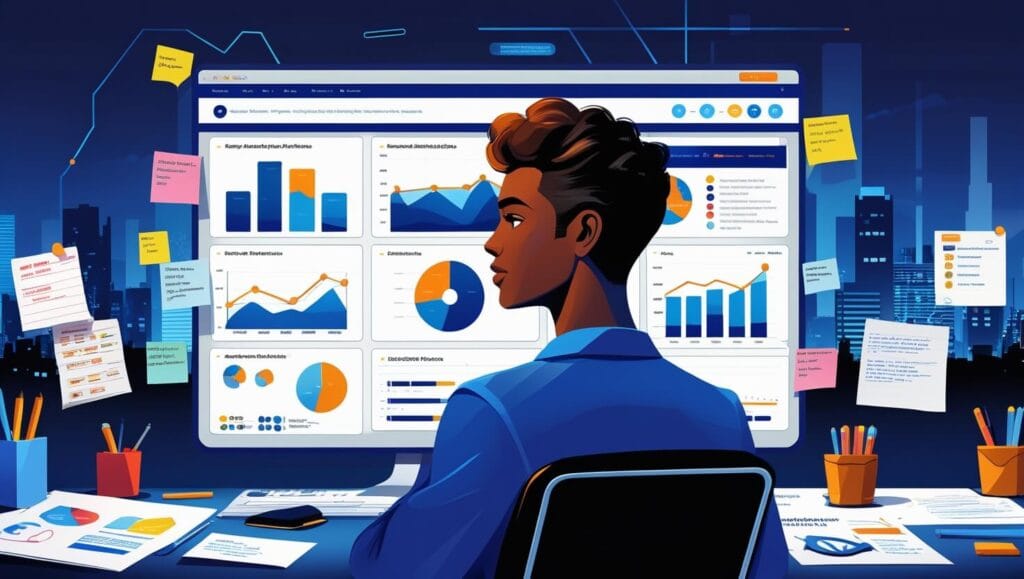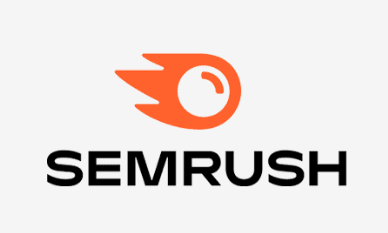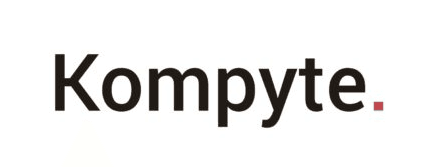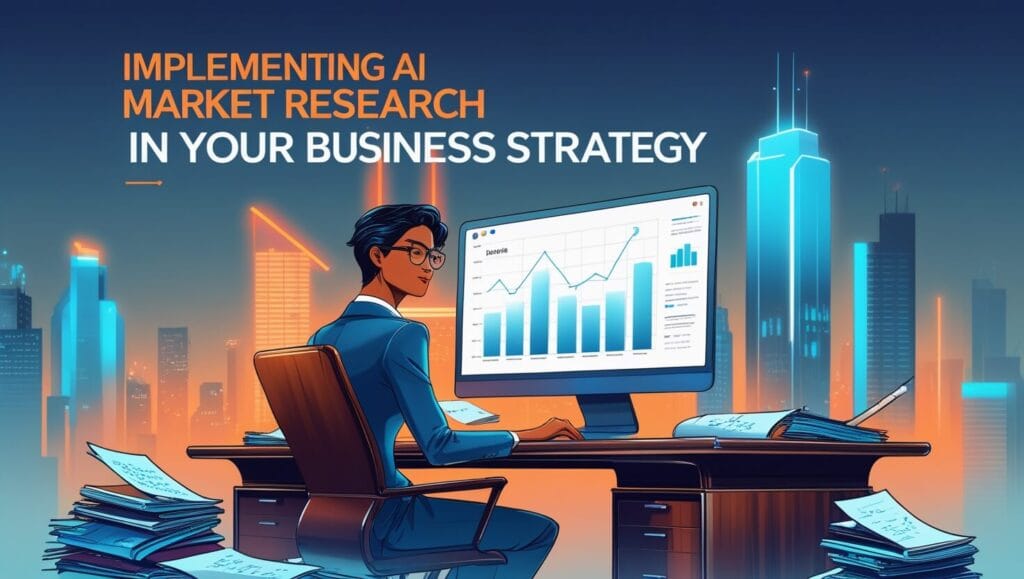
I’ll never forget the moment I realized traditional market research was dead. It was 2022, and I’d just spent three weeks manually analyzing competitor pricing strategies for a client. The data was already outdated by the time I finished! That’s when I discovered the game-changing power of AI for market research, and honestly, it felt like stepping into the future.
The market research landscape has been completely revolutionized by artificial intelligence, and if you’re not leveraging these tools yet, you’re already behind. Did you know that companies using AI for market research can process data 50 times faster than traditional methods? That statistic alone should make you pay attention. The best part? We’re just getting started with what’s possible in 2026.
In this comprehensive guide, I’m going to walk you through the absolute best AI tools for market research and competitor analysis that are dominating the industry right now. From my years of experience testing dozens of platforms, I’ve narrowed it down to the ones that actually deliver results. Whether you’re a startup founder trying to understand your competition or a seasoned marketer looking to upgrade your research game, this article will give you everything you need to make informed decisions about AI-powered market research tools.
AI for Market Research: The Foundation

AI for market research has completely transformed how businesses gather, analyze, and interpret consumer data. When I first started using artificial intelligence for market analysis, I was skeptical about whether machines could really understand market nuances the way humans do. Boy, was I wrong! The sophisticated algorithms powering today’s AI market research tools can identify patterns and trends that would take human researchers months to discover.
The core benefit of using AI for market research lies in its ability to process massive datasets in real-time. Traditional market research methods often involve surveys, focus groups, and manual data collection that can take weeks or months to complete. With AI-powered market research, you can analyze thousands of data points across multiple channels simultaneously. I’ve personally seen businesses cut their research timelines from months to days using the right AI tools.
What makes AI for market research particularly powerful is its ability to eliminate human bias from data interpretation. When I’m analyzing competitor strategies manually, I naturally bring my own assumptions and experiences to the table. AI algorithms, however, approach data with complete objectivity, identifying correlations and insights that human researchers might miss. This objectivity is crucial when making strategic business decisions based on market intelligence.
The machine learning capabilities of modern AI for market research tools continuously improve their accuracy over time. Every data point analyzed helps these systems become smarter and more precise in their predictions. I’ve watched AI tools evolve from basic data processors to sophisticated market intelligence platforms that can predict consumer behavior with remarkable accuracy. The learning curve for these systems means they become more valuable the longer you use them.
Another game-changing aspect of AI for market research is its ability to analyze unstructured data from social media, reviews, forums, and news articles. Traditional research methods struggle with this type of qualitative data because it’s time-intensive to process manually. AI tools can instantly analyze sentiment, identify emerging trends, and extract meaningful insights from millions of social media posts and online conversations about your industry or competitors.
Top AI Market Research Tools for Comprehensive Analysis
1. Crayon: The Competitive Intelligence Powerhouse

Crayon has become my go-to tool for AI-powered competitive intelligence, and for good reason. This platform uses advanced artificial intelligence to track competitor activities across their websites, social media, job postings, and marketing campaigns. What impressed me most about Crayon is how it automatically categorizes and prioritizes competitive intelligence based on your specific business needs.
The AI algorithms behind Crayon continuously monitor competitor websites and instantly alert you to changes in pricing, product launches, or marketing strategies. I remember catching a major competitor’s price drop within hours of implementation, which allowed my client to respond immediately and maintain market share. The real-time nature of AI for market research through Crayon gives businesses a significant competitive advantage.
Key features that make Crayon exceptional for AI market research include:
- Real-time competitor monitoring across multiple digital channels
- Automated insight generation that highlights the most important competitive movements
- Custom battlecards created automatically based on competitive intelligence
- Integration capabilities with CRM and sales tools for immediate action
- Sentiment analysis of competitor brand perception across social platforms
What sets Crayon apart in the AI for market research space is its ability to understand context. The platform doesn’t just track changes; it interprets whether those changes are significant for your business strategy. This contextual understanding comes from sophisticated machine learning algorithms trained on millions of competitive data points.
2. Brandwatch: Social Listening and Consumer Intelligence

Brandwatch represents the pinnacle of AI-powered social listening for market research. When I need deep consumer insights or want to understand market sentiment, this platform delivers insights that would be impossible to gather manually. The AI behind Brandwatch processes over 100 million online conversations daily, extracting meaningful patterns and trends from social media chatter.
The natural language processing capabilities of Brandwatch’s AI for market research are particularly impressive. The platform can understand context, sarcasm, and cultural nuances in social media posts across dozens of languages. I’ve used it to analyze global market sentiment for international expansion projects, and the accuracy of its cultural interpretation consistently amazes me.
Brandwatch excels in several key areas for AI market research:
- Advanced sentiment analysis that goes beyond positive/negative to understand emotional context
- Trend forecasting based on social media conversation patterns
- Influencer identification and impact measurement across social platforms
- Crisis monitoring with real-time alerts for brand reputation issues
- Consumer persona development based on actual social media behavior data
The predictive analytics features in Brandwatch use AI to forecast market trends before they become obvious. I’ve successfully helped clients launch products by identifying emerging consumer needs through Brandwatch’s AI analysis of social conversations. This forward-looking capability makes it invaluable for strategic market research planning.
3. SEMrush Market Explorer: AI-Powered Industry Analysis

SEMrush Market Explorer brings AI for market research directly into the digital marketing realm, and it’s become an essential tool in my research arsenal. While many people know SEMrush for SEO, their Market Explorer module uses artificial intelligence to analyze entire industries and provide comprehensive market intelligence that goes far beyond search data.
The AI algorithms in Market Explorer analyze traffic patterns, audience overlap, and competitive positioning across entire market sectors. When I’m working with clients who need to understand their market landscape quickly, this tool provides insights that would traditionally require expensive market research reports. The ability to see audience flow between competitors and identify market gaps is particularly valuable.
Market Explorer’s AI for market research capabilities include:
- Industry growth analysis with traffic-based market size estimation
- Audience overlap mapping between competitors and potential partners
- Market quadrant positioning based on traffic and audience engagement metrics
- Geographic market analysis showing regional strength and opportunities
- Trending keyword identification that reveals emerging market interests
What makes SEMrush Market Explorer particularly useful for AI market research is its integration with other SEMrush tools. The platform connects competitive intelligence with SEO data, paid advertising insights, and content analysis to provide a complete digital market picture. This holistic approach helps businesses understand not just who their competitors are, but how they’re succeeding in digital channels.
AI Tools for Competitor Analysis and Benchmarking
1. SimilarWeb: Traffic Intelligence and Market Share Analysis

SimilarWeb has evolved into one of the most sophisticated AI for market research platforms available, particularly for understanding digital market dynamics. The platform’s artificial intelligence analyzes website traffic patterns, user behavior, and digital engagement across millions of websites to provide comprehensive competitive intelligence. When I need to understand market share or digital performance benchmarking, SimilarWeb consistently delivers actionable insights.
The AI algorithms powering SimilarWeb can estimate market share based on digital footprint analysis, which is incredibly valuable for industries where traditional market research data is expensive or unavailable. I’ve used it to help startups understand their position relative to established competitors and identify growth opportunities in digital channels. The accuracy of traffic estimates and audience insights continues to improve as their AI models process more data.
SimilarWeb’s AI for market research features include:
- Traffic estimation and analysis across websites and mobile apps
- Audience overlap and affinity mapping between competitors
- Marketing channel analysis showing where competitors invest their digital marketing budget
- App performance benchmarking for mobile market intelligence
- Industry trend identification based on aggregate traffic patterns
The predictive capabilities of SimilarWeb’s AI help forecast market trends by analyzing traffic patterns across entire industries. This macro-level analysis is particularly useful for strategic planning and market entry decisions.
2. Kompyte: Real-Time Competitive Intelligence

Kompyte specializes in real-time AI-powered competitive monitoring, and it’s become essential for businesses that need immediate awareness of competitor activities. The platform’s artificial intelligence continuously monitors competitor websites, pricing changes, product updates, and marketing campaigns to provide instant notifications of significant competitive movements.
What impressed me most about Kompyte’s approach to AI for market research is its focus on actionable intelligence. Rather than overwhelming users with data, the AI algorithms prioritize competitive changes based on potential business impact. This intelligent filtering helps marketing and sales teams focus on the competitive intelligence that actually matters for their specific market position.
Kompyte’s AI market research capabilities focus on:
- Automated competitive monitoring across websites and digital channels
- Price tracking and optimization suggestions based on competitive analysis
- Content and messaging analysis to identify successful competitor strategies
- Sales enablement through automated battlecard updates
- Campaign monitoring across paid advertising and social media channels
The machine learning algorithms in Kompyte learn from user behavior to improve the relevance of competitive alerts over time. This adaptive approach ensures that the AI becomes more valuable as it understands your specific competitive landscape and business priorities.
Industry-Specific AI Market Research Solutions

Financial Services and Fintech
The financial services industry has unique requirements for AI for market research, particularly around regulatory compliance and risk assessment. Specialized AI tools like AlphaSense and Bloomberg Terminal’s AI features provide financial market intelligence that goes beyond traditional research methods. These platforms analyze financial documents, regulatory filings, and market sentiment to provide comprehensive financial market research.
I’ve worked with fintech startups that used AI for market research to identify regulatory changes before they impacted market dynamics. The ability to process thousands of regulatory documents and identify relevant changes is something only AI can accomplish effectively. Traditional financial market research simply can’t keep pace with the volume and complexity of information in today’s financial markets.
AI market research in financial services typically includes:
- Regulatory change monitoring and impact analysis
- Risk assessment based on market sentiment and financial data analysis
- Investment opportunity identification through alternative data analysis
- Credit risk evaluation using AI-powered data analysis
- Market volatility prediction based on news sentiment and trading patterns
E-commerce and Retail
E-commerce businesses have access to some of the most sophisticated AI for market research tools available. Platforms like Jungle Scout for Amazon sellers and Commerce Inspector for Shopify stores use artificial intelligence to analyze product performance, pricing strategies, and consumer behavior patterns specific to e-commerce platforms.
The real-time nature of e-commerce data makes AI for market research particularly powerful in this industry. I’ve helped e-commerce clients identify trending products weeks before they became popular by analyzing search volume, social media mentions, and competitor inventory levels through AI-powered tools. This early trend identification can make the difference between profit and loss in competitive e-commerce markets.
E-commerce AI market research tools typically offer:
- Product opportunity analysis based on search volume and competition levels
- Pricing optimization through competitive price monitoring
- Review sentiment analysis across multiple e-commerce platforms
- Inventory trend prediction based on seasonal and market patterns
- Advertising intelligence showing competitor ad strategies and performance
Healthcare and Pharmaceuticals
Healthcare market research requires specialized AI tools that can process medical literature, clinical trial data, and regulatory information. Platforms like IQVIA and Veracyte use artificial intelligence to analyze healthcare market trends, drug development pipelines, and patient outcome data for pharmaceutical market research.
The complexity of healthcare data makes AI for market research essential in this industry. Manual analysis of clinical trial data, medical publications, and regulatory submissions would be impossible at the scale required for comprehensive healthcare market intelligence. AI algorithms can identify drug development trends, competitive therapeutic approaches, and market opportunities that would otherwise remain hidden in vast datasets.
Implementing AI Market Research in Your Business Strategy

Setting Up Your AI Market Research Framework
Implementing AI for market research successfully requires a strategic approach that aligns with your specific business objectives. When I help companies establish their AI market research framework, we start by identifying the key questions that need answering and the types of data required to make informed decisions. This focused approach ensures that AI tools provide relevant insights rather than overwhelming amounts of data.
The first step in implementing AI for market research is defining your competitive landscape clearly. This involves identifying direct and indirect competitors, understanding their digital presence, and establishing benchmarks for comparison. AI tools work best when they have clear parameters and objectives, so this foundational work is crucial for success.
Consider these elements when building your AI market research framework:
- Research objectives definition with specific, measurable goals
- Competitor identification across direct and indirect competitive threats
- Data source mapping including social media, websites, and industry publications
- Alert configuration for real-time monitoring of significant changes
- Integration planning with existing business intelligence and CRM systems
The key to successful AI for market research implementation is starting with a pilot program focused on your most critical competitive intelligence needs. This approach allows you to validate the accuracy and relevance of AI-generated insights before expanding to broader market research applications.
Data Quality and AI Market Research Accuracy
The effectiveness of AI for market research depends heavily on data quality and algorithmic accuracy. Throughout my experience with various AI market research platforms, I’ve learned that garbage in means garbage out – even the most sophisticated AI algorithms can’t compensate for poor quality data sources or incorrectly configured monitoring parameters.
Data validation becomes crucial when relying on AI for market research decisions. I always recommend cross-referencing AI-generated insights with other data sources and conducting periodic manual verification of key findings. This validation process helps identify potential biases or inaccuracies in AI algorithms and ensures that business decisions are based on reliable market intelligence.
Best practices for maintaining AI market research accuracy include:
- Regular algorithm validation through manual spot-checking of AI findings
- Data source diversification to avoid single-point-of-failure dependencies
- Bias detection protocols to identify potential algorithmic or data biases
- Performance monitoring of AI predictions against actual market outcomes
- Continuous calibration of AI models based on feedback and results
The machine learning capabilities of modern AI for market research tools improve over time, but they require proper training and validation to reach optimal performance. Investing time in proper setup and ongoing optimization pays dividends in the accuracy and relevance of market intelligence.
Measuring ROI of AI Market Research Tools
Calculating the return on investment for AI for market research requires measuring both quantitative and qualitative benefits. The time savings from automated data collection and analysis represents immediate value, but the strategic advantages from better market intelligence often provide greater long-term ROI. I’ve helped companies track ROI through improved decision-making speed, competitive response time, and market opportunity identification.
The cost of AI for market research tools should be evaluated against the alternative costs of manual research, missed opportunities, and delayed competitive responses. When a client can respond to competitor pricing changes within hours instead of weeks, the revenue protection alone often justifies the investment in AI market research capabilities.
ROI measurement for AI market research should include:
- Time savings from automated data collection and analysis
- Decision-making speed improvements for competitive responses
- Market opportunity identification and revenue impact
- Risk mitigation through early warning systems
- Research cost reduction compared to traditional market research methods
Future Trends in AI Market Research

Emerging Technologies and Capabilities
The future of AI for market research is being shaped by advances in natural language processing, computer vision, and predictive analytics. New AI models can analyze video content, understand complex context in written communications, and predict market trends with increasing accuracy. These emerging capabilities will expand the scope and depth of insights available through AI market research platforms.
Generative AI is beginning to transform how market research insights are presented and utilized. Instead of requiring analysts to interpret data visualizations and reports, future AI for market research tools will generate written summaries, strategic recommendations, and actionable insights in natural language. This evolution will make market intelligence more accessible to non-technical users throughout organizations.
Emerging trends in AI market research include:
- Multimodal analysis combining text, image, and video data for comprehensive insights
- Real-time predictive modeling for immediate market trend forecasting
- Automated report generation with natural language insights and recommendations
- Cross-platform data integration for unified competitive intelligence
- Voice and audio analysis for additional consumer insight channels
Privacy and Ethical Considerations
As AI for market research becomes more sophisticated, privacy and ethical considerations become increasingly important. Regulations like GDPR and CCPA affect how AI tools can collect and process consumer data for market research purposes. Future AI market research platforms will need to balance insight generation with privacy protection requirements.
The ethical use of AI for market research extends beyond legal compliance to include responsible data usage and transparent insight generation. Companies using AI market research tools need clear policies about data collection, algorithmic bias detection, and appropriate use of consumer insights. This ethical framework becomes part of the competitive advantage as consumers and regulators demand responsible AI usage.
Choosing the Right AI Market Research Solution
Evaluation Criteria for AI Market Research Platforms
Selecting the optimal AI for market research platform requires careful evaluation of multiple factors including data accuracy, ease of use, integration capabilities, and cost-effectiveness. Based on my experience evaluating dozens of AI market research tools, the most successful implementations start with a clear understanding of specific research needs rather than trying to find a one-size-fits-all solution.
The accuracy and reliability of AI-generated insights should be the primary consideration when choosing AI for market research tools. This includes not just the accuracy of data collection but also the relevance and actionability of algorithmic analysis. I always recommend requesting trial periods or pilot programs to validate accuracy against known market conditions before committing to long-term contracts.
Key evaluation criteria for AI market research platforms include:
- Data accuracy and source reliability across different information types
- User interface design and ease of use for non-technical team members
- Integration capabilities with existing business intelligence and CRM systems
- Customization options for industry-specific research requirements
- Support and training resources for successful implementation
The scalability of AI for market research solutions becomes important as businesses grow and research needs evolve. Platforms that can adapt to changing requirements and expand capabilities over time provide better long-term value than tools with fixed functionality sets.
Budget Considerations and Cost-Benefit Analysis
AI for market research tools range from affordable social listening platforms to enterprise-grade competitive intelligence solutions costing thousands of dollars monthly. The key to successful investment is matching platform capabilities with actual research needs rather than purchasing the most feature-rich option available.
When evaluating costs for AI for market research platforms, consider both direct subscription fees and indirect costs including training, integration, and ongoing management. Some platforms require significant technical expertise to implement effectively, while others offer user-friendly interfaces suitable for non-technical team members. These implementation differences affect total cost of ownership significantly.
Budget planning for AI market research should consider:
- Direct platform costs including subscription fees and setup charges
- Integration expenses for connecting with existing business systems
- Training requirements for team members using the platform
- Ongoing management and optimization time investments
- Scaling costs as research needs grow over time
AI Market Research

The landscape of AI for market research has fundamentally changed how businesses understand their markets, competitors, and customers. From my years of experience implementing these tools across various industries, I can confidently say that companies not leveraging AI for market research are operating at a significant disadvantage in today’s fast-paced business environment.
The tools and strategies outlined in this guide represent the current state-of-the-art in AI-powered market intelligence. Whether you choose Crayon for competitive monitoring, Brandwatch for social listening, or SimilarWeb for digital market analysis, the key is starting with clear objectives and allowing AI algorithms to enhance rather than replace human strategic thinking.
As we move further into 2026, AI for market research will continue evolving with more sophisticated predictive capabilities, better integration options, and enhanced user interfaces. The businesses that establish strong AI market research capabilities now will be best positioned to capitalize on future innovations and maintain competitive advantages in their respective markets.
Remember that successful implementation of AI for market research requires ongoing optimization, validation, and strategic application of insights. The technology is powerful, but its effectiveness depends on thoughtful implementation and continuous refinement based on actual business results.


